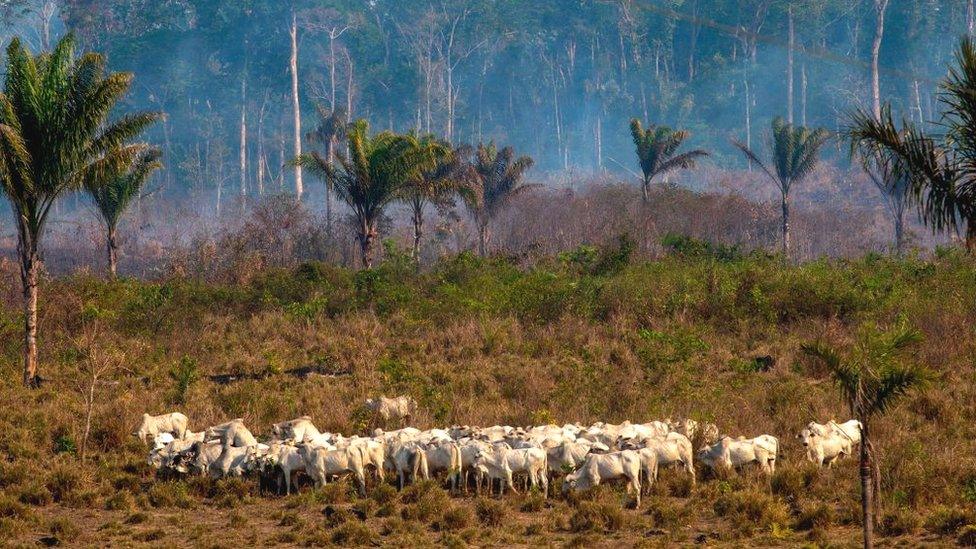How your chicken is linked to deforestation in Brazil
- Published
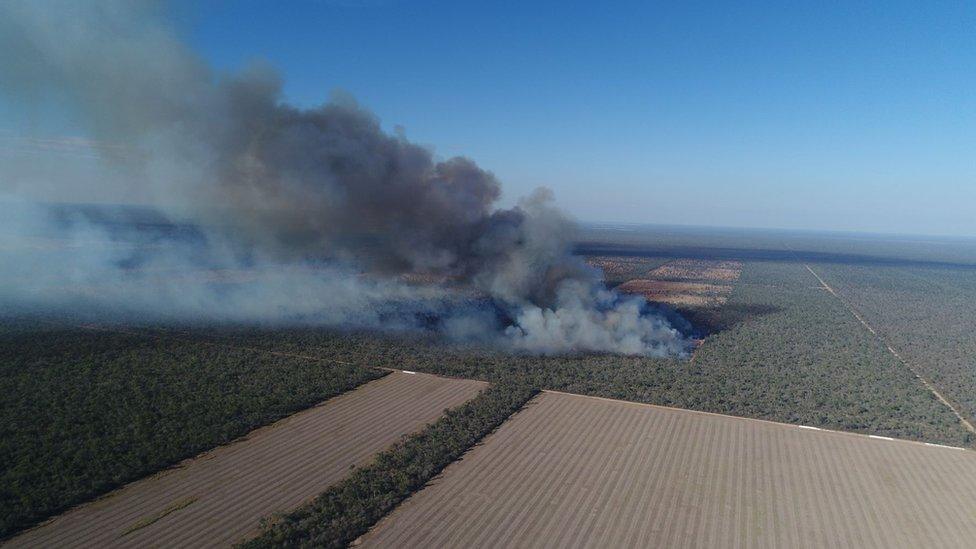
Fires clear forests to make way for growing soy
There are few pleasures these days, so taking a bite of your flame-grilled chicken burger may be the one highlight of the week.
Takeaway obviously, if you're in lockdown.
Now, we don't want to take that one pleasure away but that piece of chicken could be contributing to deforestation.
A new investigation has linked British chicken to forests being cleared for agriculture in Brazil.
Greenpeace Unearthed and the Bureau for Investigative Journalism, external have found that huge areas of forest, in an area called the Cerrado, are being cut down to plant soy beans.
The soy is then shipped back to the UK and sold for animal feed.
The investigation said Tesco, Asda, Lidl, Nandos and McDonalds were all selling meat, sourced from a UK supplier, which had been fed on soy from the Cerrado. The supplier has said it does not source from illegally cleared land.
But many British consumers are unknowingly contributing to this deforestation.
Allow X content?
This article contains content provided by X. We ask for your permission before anything is loaded, as they may be using cookies and other technologies. You may want to read X’s cookie policy, external and privacy policy, external before accepting. To view this content choose ‘accept and continue’.

What is the Cerrado?
While we all may have heard of the Amazon, the Cerrado is not as well known but actually covers more than 20% of Brazil.
Almost half of its forests have been cut down to make way for agriculture, mainly growing soy.
It's a wooded savannah - and it's home to thousands of rare species and unique plants.
"The rate at which it's being deforested is is really, really high, and it's legal to do a lot of this," Chiara Vitali from Greenpeace UK told BBC Radio 1 Newsbeat.
"The Cerrado is the most biodiverse savannah in the world, it's home to amazing species like the jaguar and the giant anteater."
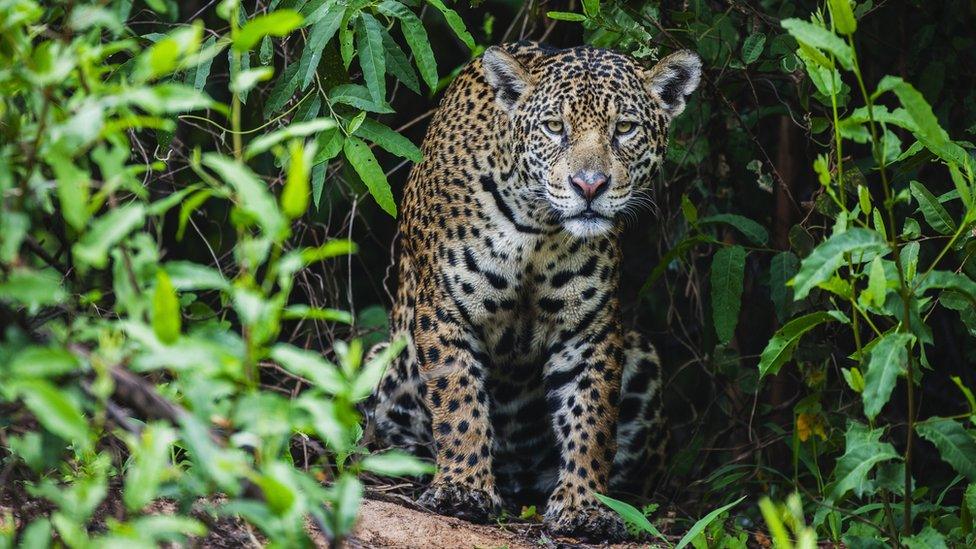
The Cerrado is home to rare animals like the jaguar
The Cerrado is also really important for the world's climate, as the trees help store carbon, pulling it out of the atmosphere.
"When the trees are burned, the reverse happens, and a lifetime of carbon is released from the trees," Chiara says.
"Trees are basically one of our best defences against climate change, leaving them standing can really help reverse the effects of climate change and draw carbon back out of the atmosphere.
"Destroying them makes climate change worse."
What do the companies say?
The supermarkets and fast food chains all told Newsbeat they were committed to tackling deforestation in their supply chains.
They all said there was more work to do.
In a statement, Asda said: "We understand the importance of sustainable soy to our customers and are committed to reducing food production linked to deforestation.
"The soy supply chain can be extremely complex and we are working with our suppliers on a plan to ensure that by 2025 all of our soya is physically certified."
Tesco told Newsbeat it had met "the 2020 industry-wide target of certified 'zero net deforestation'" for its own direct soy sourcing a year early.
But it said it's also set an additional target to only use soy "from entire areas that are verified deforestation-free by 2025".
It added that it's committed £10m to protect the region's biodiversity.
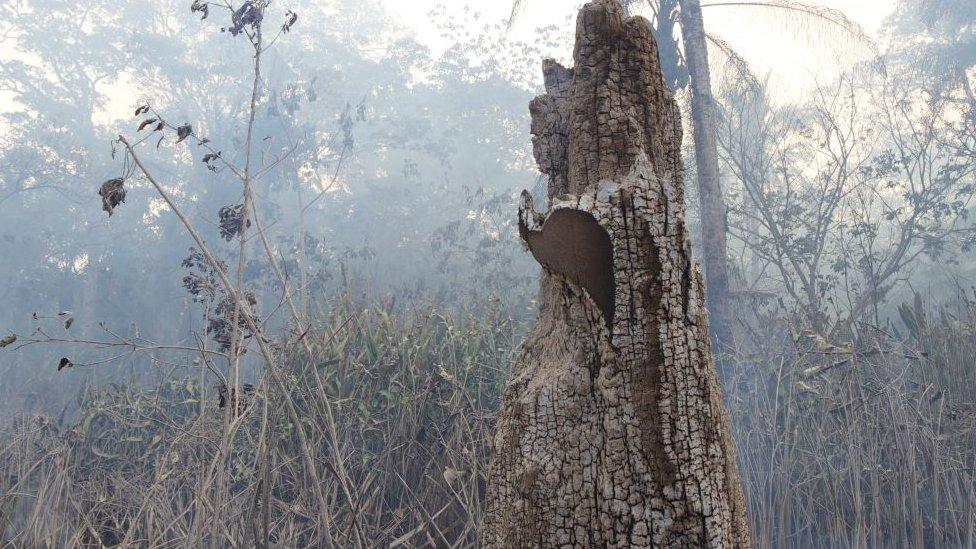
The UK government says protecting rainforests is a core priority
Lidl also said it's committed to sourcing "sustainable and deforestation-free soy".
It added: "We have actively supported calls to government for more ambitious requirements on businesses to address this issue, and believe a level playing field is needed to halt all forms of deforestation."
Nando's told Newsbeat that since December 2015 "all the soy we use in our ingredients and our supply chain has been responsibly sourced under the Roundtable on Responsible Soy (RTRS), ProTerra or equivalent".
It added that it's "investing in research looking at more sustainable feed alternatives".
McDonalds told Newsbeat its set a goal to eliminate deforestation from its global supply chains by 2030.
The fast-food chain says it's working "collaboratively and urgently to address the complex challenge of deforestation".
What is the government doing about it?
The government says protecting rainforests is a core priority., external
Under the new Environment Bill, new laws will be introduced to help consumers from buying food grown on rainforest land that has been illegally logged.
UK firms will be banned from selling commodities if their production breaches local laws protecting forests and other natural areas.
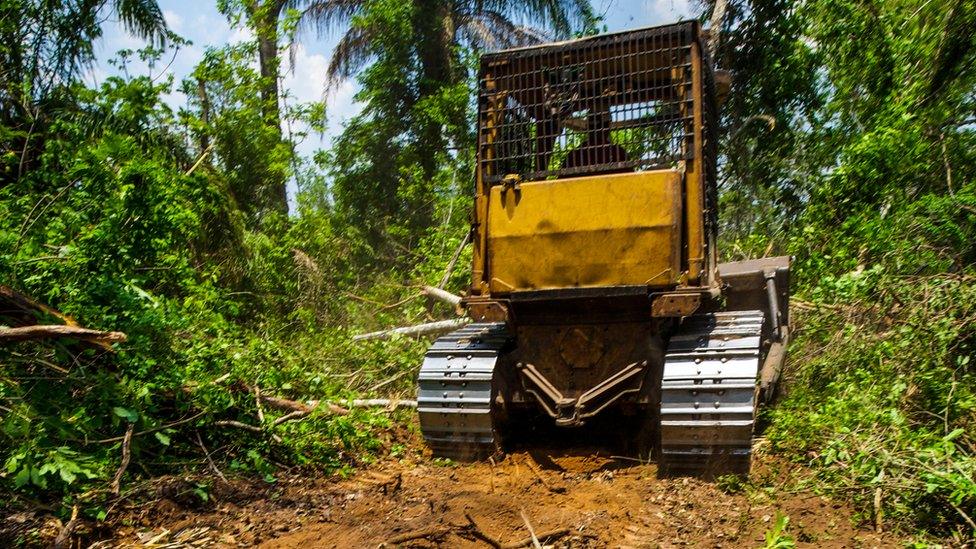
The Cerrado has seen half of its forests disappear to make way for agriculture
But Greenpeace says the big problem with these laws is that they only work on illegal deforestation.
"In the Cerrado, it's legal for a landowner to clear up to 80% of the forest on their land - and that's why it's being deforested so quickly," Chiara Vitali from Greenpeace UK says.
"The law as it's set out now is not going to stop any of this from getting into our food system.
"That's why we're calling on companies to act first because they can they can act now."
What can you do?
Whether it's breast or fillet for dinner, looking at the back of a packet isn't going to give you any answers on what your chicken has been fed - or where that feed comes from.
The information just isn't available.
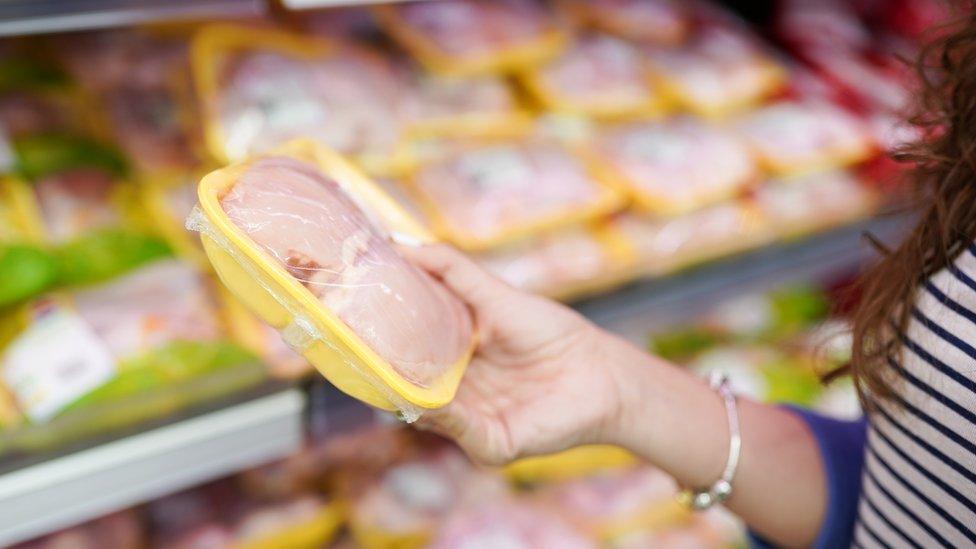
It's almost impossible to know what your chicken has been fed and where it's from
"The best thing that people can do really is to help put pressure on these companies because they're the ones that ultimately need to get control over their supply chains," Chiara says.
"And consumers have the power to do that because they have the buying power."
It's widely thought that eating meat has a big effect on the environment.
"In the UK, we're already eating way above the global average," Chiara explains.
"It's about reducing what we're producing and making that more sustainable - bringing things back into balance.
"So it's a case of less and better."


Follow Newsbeat on Instagram, external, Facebook, external, Twitter, external and YouTube, external.
Listen to Newsbeat live at 12:45 and 17:45 weekdays - or listen back here.
- Published5 October 2020
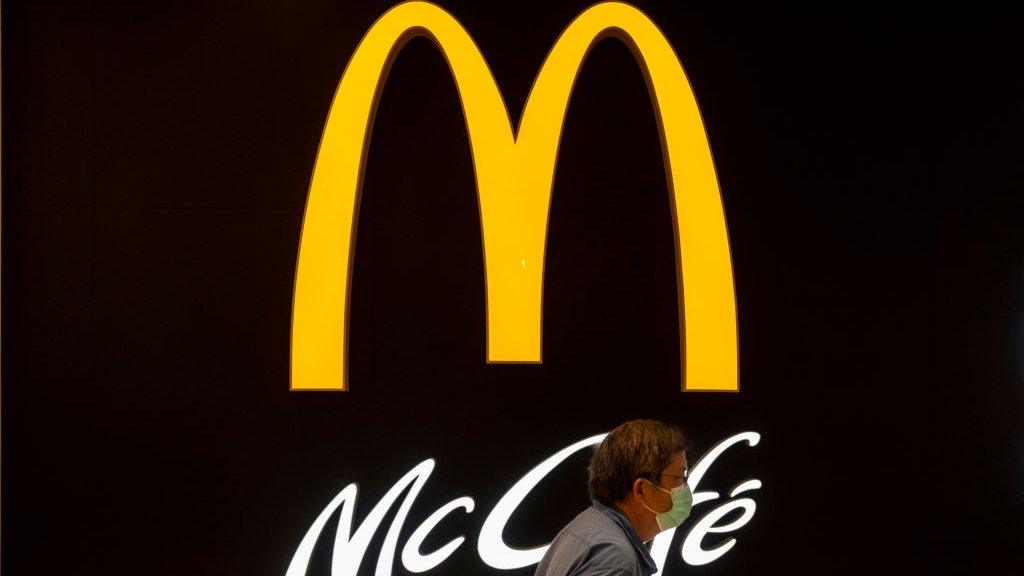
- Published11 November 2020
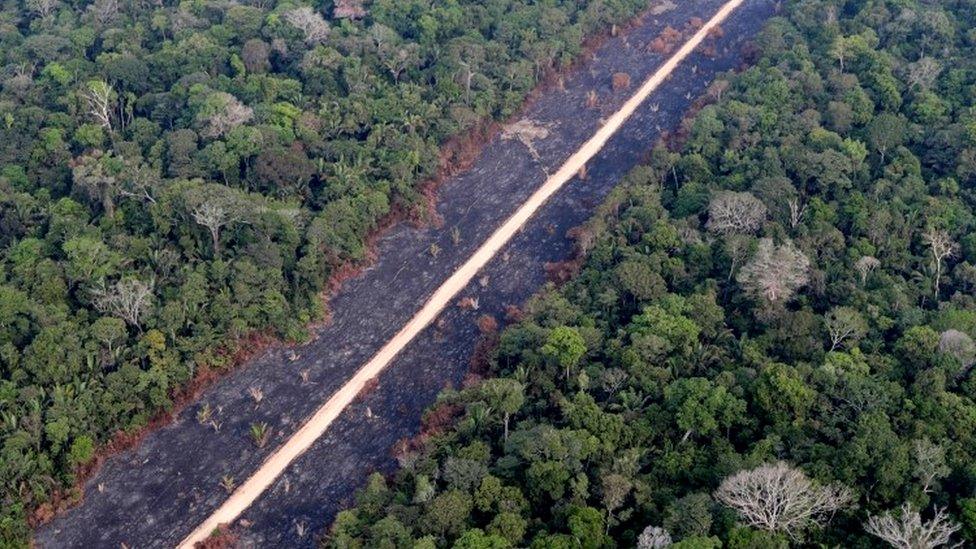
- Published18 July 2020
